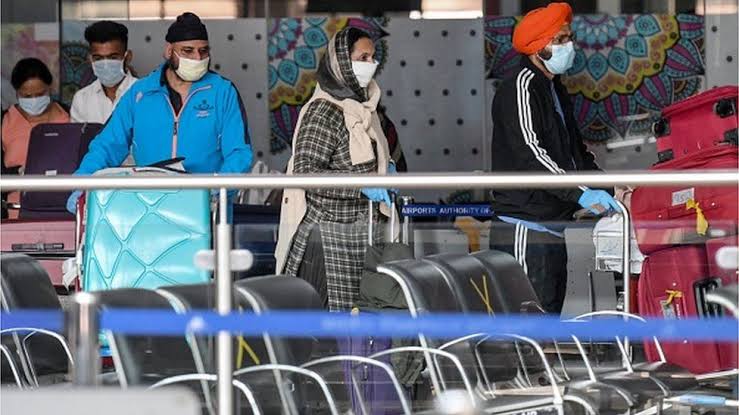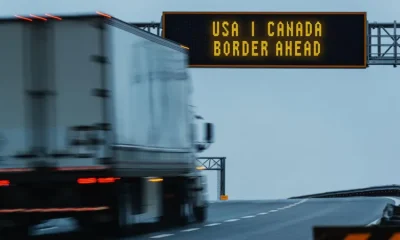International
Canada: Indian Students Face Exit Over Fake Papers

-
They have been told to leave the country by the Canadian Border Security Agency
-
It is alleged that these students arrived in the country on the basis of forged college admission letters
-
The students claim innocence and insist that they were duped by their immigration consultation agency in India
Eko Hot Blog reports that “My mind is dark. I cannot move forward, nor go back,” says Dimple K, an Indian woman who’s been living in Canada on a student visa since December 2017.
EDITOR’S PICKS
-
Weekly Gist With Annie: My Love-hate Experience At NYSC Camp
-
India: Disruption Arises During G20 Peace Talk
-
Japan: Controversies Rise Over PM’s LGBTQ Comments
She is now among more than 150 Indian students who have been told to leave the country by the Canadian Border Security Agency (CBSA).
The CBSA alleges these students arrived in the country on the basis of forged college admission letters.
The students claim innocence and insist that they were duped by their immigration consultation agency in India that provided them the document.
Many who received the eviction letters are now embarrassed to come forward, fearing stigma.
Living in a western country is seen as a matter of prestige by many Indian families, especially in Punjab, the state to which Dimple belongs.
In a similar case four years ago, 129 Indian students in the US were arrested for enrolling in a fake university.
Dimple is married and comes from a middle-class family in Jalandhar district. Daughter of a tailor father and a homemaker mother, she has three siblings.
A post-graduate in science, she tried to get a job in India for a long time, but was unsuccessful.
The hope of a better life with her husband prompted her to apply for a student visa in Canada.
From her cousin, she heard of an immigration agency – which police say has been shut for the past seven months – and used its services to get a Canadian visa.
“The agency told me that one of the colleges had accepted my documents, and gave me the admission letter which they said was from the college,” she tells the BBC over phone.
Dimple paid the agency 1.2m rupees ($14,525; £11,970). The amount was to cover her college fee. The agency also gave her a certificate to prove that she had funds to take care of living expenses in Canada.
But Dimple says within two days of her arrival in the country, she was informed by the agency that there had been a strike in her college. They advised to apply to another college.
In December 2019, Dimple completed her diploma in computer networking and received her work permit. But in May 2022, a year after she had applied for permanent residency, she was informed by Canadian authorities that her application had a forged document.
In January, she was served an exclusion order – which usually means an order to leave the country. She has been told to leave Canada and not return for at least five years.
She has challenged the order in a federal court in Canada.
Her attorney Jaswant Singh Mangat is representing over three dozen students who are in a similar situation.
In most of these cases, he says, fake admission letters were provided at an exorbitant fees. These were used to obtain visas.
After finishing their courses, many of these students obtained their work permits and then applied for permanent residency.
That’s when the immigration department discovered that there were issues with their admission documents.
“Couldn’t immigration officials detect the documents were fake at the airport, or while issuing student visas, [so] how was I expected to find that out?,” asks Dimple.
The CBSA added that last year they “uncovered a scheme whereby unsubsidised private college programmes were leading foreign students to a post-graduation work permit (for $25,000) with the sole purpose of acquiring permanent residency”.
“This investigation led, on 7 June 2022, to the decision by the federal and provincial governments to tighten the criteria for granting post-graduation work permits. The investigation targeted 11 colleges that were implicated in the fraud,” it said.
The incident has shattered many dreams.
“We cannot take any legal action because we don’t have any proof against the the [Indian] agency which prepared our documents,” says Chamandeep Singh, a student from Punjab.
Another Indian student, Inderjit Singh, says he will not go back to India because the forged documents were not his fault.
Experts say Indian authorities need to crack down on immigration agencies which deceive students.
They add applicants also need to more aware and look for registered immigration agents.
FURTHER READING
-
US: Winter Storm Surges In California
-
Greece: Death Toll Rises From Train Crash
-
Everything You Need To Know About Alex Murdaugh Murder Trial
“This is your money, your life, your future,” Mr Mangat warns applicants.
Source: BBC
Click to watch our video of the week:
Advertise or Publish a Story on EkoHot Blog:
Kindly contact us at [email protected]. Breaking stories should be sent to the above email and substantiated with pictorial evidence.
Citizen journalists will receive a token as data incentive.
Call or Whatsapp: 0803 561 7233, 0703 414 5611


















